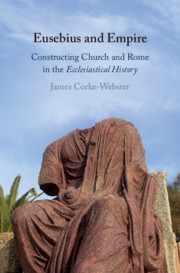Conclusion
from Part III
Published online by Cambridge University Press: 04 January 2019
Summary
- Type
- Chapter
- Information
- Eusebius and EmpireConstructing Church and Rome in the <I>Ecclesiastical History</I>, pp. 280 - 301Publisher: Cambridge University PressPrint publication year: 2019

